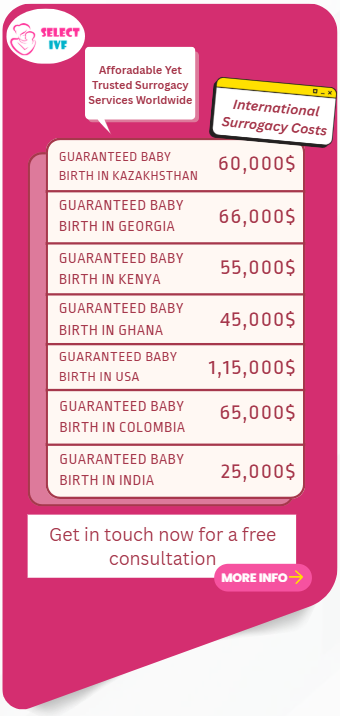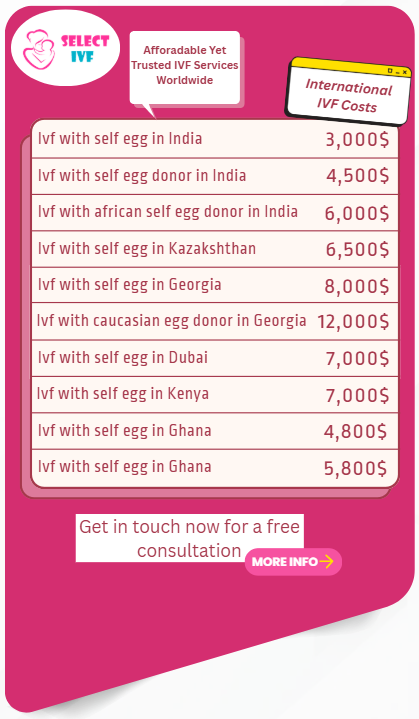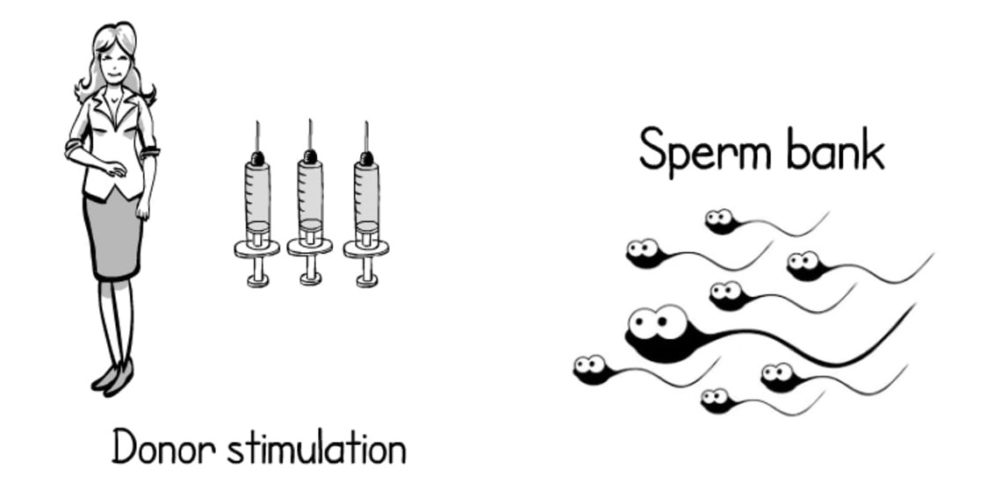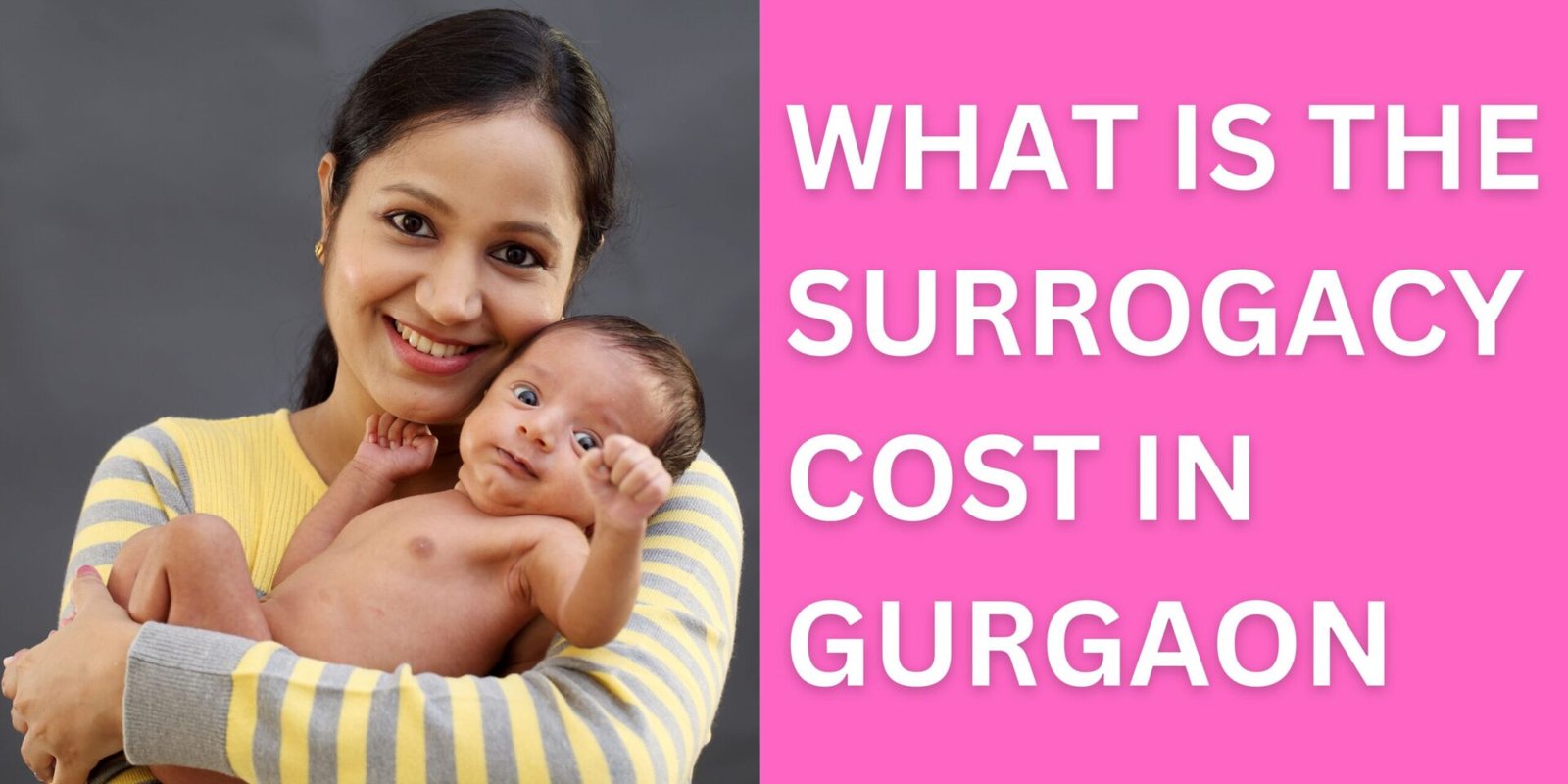Welcome to Select IVF, your trusted source for comprehensive fertility solutions. As a leading fertility clinic in India, we understand the significance of the Egg Donor Cost in India for individuals navigating the journey to parenthood. Our commitment to transparency and accessibility is reflected in our tailored egg donation programs, ensuring that aspiring parents can make informed decisions about their fertility options.
Egg donation has emerged as a beacon of hope for those facing challenges in conceiving. In India, the Egg Donor Cost is a pivotal factor influencing the choice of fertility treatment. At Select IVF, we strive to provide a detailed breakdown of costs associated with our egg donation services, encompassing medical procedures, donor compensation, and ancillary expenses.
Our dedicated team of fertility experts is here to guide you through this process, offering compassionate support and personalized solutions. Discover the possibilities with Select IVF as we demystify the Egg Donor Cost in India, empowering you on your path to parenthood.
Understanding Egg Donation
Understanding Egg Donation involves the selfless contribution of a woman’s eggs to help others build families. It is a compassionate and empowering choice, fostering hope and new beginnings.
What is egg donation?
Egg donation involves a voluntary process where a woman, known as the donor, contributes her eggs to assist individuals or couples facing difficulties in conceiving a child. The primary purpose is to provide a viable solution for those grappling with infertility or genetic disorders, allowing them the opportunity to build a family through assisted reproductive technology.
Who opts for egg donation?
- Couples Facing Infertility: A significant demographic opting for egg donation consists of couples experiencing challenges in achieving pregnancy due to infertility issues. This subsection will explore the reasons behind infertility and how egg donation serves as a valuable option for these couples to fulfill their dream of parenthood.
- Same-Sex Couples: Same-sex couples constitute another group benefiting from egg donation. We will delve into the unique dynamics of how egg donation plays a crucial role in family-building for same-sex couples, providing them with the opportunity to have a biological connection with their child.
- Single Individuals: Egg donation is not limited to couples; single individuals navigating the journey of parenthood alone also opt for this assisted reproductive technology. This section will shed light on the motivations and considerations that lead single individuals to choose egg donation as a pathway to parenthood.

Egg Donation Process in India
Having a baby is a dream for many families. But sometimes, a woman’s eggs are not strong enough to make a baby. In such cases, another healthy woman can give her eggs to help. This act is called egg donation. Let’s go step by step and see how the process works in India.
1. Choosing the Donor
The first step is finding the right donor. Clinics in India usually keep a list of women who are ready to donate eggs. These donors are between 21 to 35 years old, because at this age the eggs are healthy and of good quality. The donor must not have any serious health issues like diabetes or infections. Parents can choose a donor by looking at her medical history, background, and sometimes education.
2. Medical and Psychological Tests
Before donating, the donor has to pass many tests. Doctors check her blood group, hormone levels, and test for diseases. A complete health check makes sure the eggs are safe. Psychological (mind) counselling is also done, to confirm that the donor fully understands the process and is comfortable with her decision.
3. Preparing the Donor’s Body
Normally, women release only one egg every month. But doctors need many eggs to increase the chance of success. So, the donor is given hormone injections for 10–12 days. These medicines help her ovaries produce more eggs. During this time, doctors monitor her with ultrasound scans and blood tests to check how the eggs are growing.
4. Egg Collection Process
When the eggs are ready, doctors collect them through a small procedure called egg retrieval. The donor is given light anesthesia (medicine that makes her sleep for a short time). Using a thin needle guided by ultrasound, doctors gently remove the eggs from the ovaries. The process takes about 20–30 minutes, and the donor can rest and go home the same day.
5. Fertilization in the Lab
The collected eggs are then mixed with the father’s sperm in a special lab to create embryos (tiny early-stage babies). After 3–5 days, the healthiest embryo is placed inside the mother’s womb (or surrogate mother’s womb), where it can grow into a baby.
6. Legal Rules in India
In India, egg donation is regulated by the law. It is allowed only under altruistic surrogacy rules, meaning the donor does not get paid except for medical costs and basic expenses. Also, the donor’s name and identity are kept private. This protects both the donor and the intended parents.
Egg donation in India is like a team effort. The donor gives her healthy eggs, doctors collect and fertilize them, and parents finally get a chance to have their own baby. It’s a safe, guided, and legal process where everyone plays an important role.
Do egg donors get paid in India?
Yes, egg donors get compensation for their work. They receive financial compensation in India for investing their time, effort, and body for women. If you do IVF with an egg donor, then it can cost around 350000 INR. If we talk about the cost of an egg donor alone, then the cost can range between 50,000 to 1,00,000. This can increase or decrease based on the medical expenses of the egg donor. This is the cost per cycle. If the number of cycles increases, then the cost will also increase.
How to Select the Right Egg Donor in India?
Choosing the right egg donor is one of the most important steps in your fertility journey. The right donor can make a huge difference in the success of IVF and the health of your future baby. In India, there are many options, and finding the perfect match might feel overwhelming, but don’t worry! Here’s a practical guide to help you make the best choice.
1. Consider Physical and Genetic Compatibility
Many intended parents want their child to resemble them in appearance. When selecting an egg donor, consider factors like height, weight, skin tone, eye color, and hair color. Genetic history is also crucial; ask about family medical history to avoid potential inherited conditions. Reputable clinics provide detailed donor profiles that include this information.
2. Check Health and Lifestyle Background
A healthy donor is essential for successful IVF. Look for donors who are medically screened for infections, genetic disorders, and reproductive health. Lifestyle factors like non-smoking, limited alcohol, and a healthy diet also matter. Clinics in India often provide comprehensive health reports of donors for transparency.
3. Review Educational and Personality Traits
Some intended parents prefer donors with certain educational or personality traits. While these don’t affect the child’s health directly, they can be important for personal preferences or future interactions. Many egg banks provide details on donors’ education, hobbies, and interests.
4. Understand the Donor’s Previous Experience
Some egg donors have donated before, while others are new. Experienced donors may have a proven track record, which can increase the chances of success. Discuss with your clinic about prior successful donations, if available.
5. Consider Legal and Ethical Aspects
Make sure the donor has provided informed consent and that all legal paperwork is clear. Indian regulations require proper documentation to ensure the rights of both the donor and intended parents. Always work with reputable fertility clinics that follow legal and ethical guidelines.
6. Evaluate Availability and Commitment
Egg donation requires commitment, including medical appointments and hormone injections. Ensure the donor is reliable and available for the necessary procedures, as delays can affect IVF timing. Clinics usually provide a clear schedule and guidance for the process.
7. Trust Your Clinic’s Guidance
A trusted fertility clinic in India can help match you with the most suitable donor based on your preferences, medical needs, and legal requirements. Their experience and expertise can simplify the process and provide reassurance throughout your journey.
Factors Influencing Egg Donor Costs
Egg donor costs vary based on factors such as donor qualifications, agency fees, medical screenings, and legal processes. Tailoring packages to specific needs ensures fair and transparent pricing.
Clinic Reputation and Location: The reputation and location of the clinic play a pivotal role in determining egg donor costs. Established and renowned clinics may charge higher fees due to their track record of success and advanced facilities. Additionally, the geographical location of the clinic can influence costs, with clinics in urban centers often having higher fees compared to those in more remote areas.
Donor Compensation: The compensation provided to the egg donor is a significant factor influencing overall costs. We will go through the specifics of donor remuneration, such as basic pay and any other elements that could affect the total. Factors such as the donor’s experience, education, and demand for specific traits can impact the compensation package.
Medical Expenses: Medical expenses constitute a substantial portion of the overall costs. The several medical procedures related to egg donation will be covered in detail in this section. These procedures include ovulation induction, egg retrieval, and any necessary post-procedural care. Understanding these medical aspects is crucial for comprehending the financial aspects associated with the medical component.
Legal and Administrative Fees: The legal and administrative aspects of egg donation involve documentation, contracts, and legal procedures. We’ll talk about the costs of these services, stressing how crucial it is that the egg donation procedure be transparent and free from legal ambiguity. Legal and administrative fees can vary among clinics and are essential considerations in understanding the total cost.
Additional Services: Beyond the core procedures, additional services may contribute to the overall cost. This can encompass genetic testing, psychological counseling for donors, and other additional services designed to guarantee the welfare of all concerned parties. Exploring these additional services will provide a comprehensive overview of the factors that may influence the overall cost of egg donation.
What is the cost of IVF with an egg donor in India?
India is one of the most cost-effective countries for fertility treatments, and IVF with donor eggs is no exception. This treatment is often recommended when a woman is unable to produce healthy eggs due to age or medical conditions.
The cost of IVF with donor egg in India ranges between ₹1.5 lakh to ₹2.75 lakh ($1,800 – $3,300) per cycle. This includes donor screening, egg retrieval, IVF laboratory charges, fertilization, and embryo transfer. Additional costs may apply for medicines, genetic testing, or freezing of embryos.
Compared to Western countries, where donor egg IVF can cost $15,000 to $25,000, India offers a far more affordable solution while maintaining high-quality standards.
Indian IVF centres are equipped with modern labs, skilled embryologists, and experienced fertility specialists. Donors are carefully selected and undergo thorough medical testing to ensure the safety and success of the procedure.
Breaking Down the Costs
Our detailed cost breakdown provides transparency, ensuring you understand every aspect of your fertility journey. Trust us for clarity and affordability in achieving your dream of parenthood.
Donor Compensation Breakdown: The breakdown of donor compensation is a crucial aspect to understand the financial considerations in egg donation. The several components of donor remuneration will be covered in detail in this article. These components include the basic compensation as well as extras like the donor’s experience, education, and other special qualities that may affect the total compensation package. By providing transparency on how donor compensation is calculated, readers can gain insights into this significant aspect of the cost breakdown.
Clinic Fees: Clinic fees encompass a range of services provided throughout the egg donation process. The various clinic expenses, including consultation fees, procedure fees, and any other costs related to the medical facilities, will be described in this chapter. Understanding these clinic-related expenses is essential for prospective donors and recipients to make informed decisions regarding the selection of a clinic and the financial commitments involved.
Medication and Medical Expenses: The medication and medical expenses section will focus on the costs associated with the medical procedures involved in egg donation. This includes the medications used for ovulation induction, monitoring procedures, and the surgical process of egg retrieval. Providing a breakdown of these medical costs will offer clarity on the financial aspects related to the necessary healthcare procedures.
Legal and Administrative Costs: Legal and administrative costs are integral to ensuring a smooth and legally sound egg donation process. The expenses related to legal paperwork, contracts, and any other administrative work that goes into the total cost will be discussed in this paragraph. By understanding the legal and administrative aspects, individuals involved in the egg donation process can appreciate the importance of these services and the associated expenses.
Comparison with other countries
Surrogacy laws, costs, and procedures vary widely across countries. Understanding these differences helps intended parents make informed decisions about where to pursue surrogacy, balancing legal safety, costs, and convenience.
1. India
- Surrogacy Type: Gestational surrogacy only (commercial surrogacy banned; altruistic allowed for Indian residents)
- Eligibility: Married couples, Indian citizens, age 23–50 for women, 26–55 for men
- Average Cost: ₹15,00,000 – ₹25,00,000 (altruistic surrogacy is lower)
- Pros: High-quality fertility clinics, experienced doctors, lower cost compared to Western countries
- Cons: Strict legal restrictions; foreign nationals not allowed
2. United States
- Surrogacy Type: Gestational surrogacy, commercial allowed in most states
- Eligibility: Varies by state; often open to married, single, and same-sex couples
- Average Cost: $90,000 – $150,000
- Pros: Strong legal protections for intended parents, high-quality medical care, experienced surrogates
- Cons: Very expensive compared to other countries
3. Ukraine
- Surrogacy Type: Gestational surrogacy, commercial
- Eligibility: Married couples only
- Average Cost: $40,000 – $60,000
- Pros: Cost-effective, clear legal framework for intended parents
- Cons: Travel and accommodation needed; language barriers possible
4. Georgia
- Surrogacy Type: Gestational surrogacy, commercial allowed
- Eligibility: Married couples, some flexibility for foreigners
- Average Cost: $50,000 – $70,000
- Pros: Affordable, supportive legal environment for intended parents
- Cons: International travel required; follow-ups may be challenging
5. Colombia
- Surrogacy Type: Gestational surrogacy, commercial allowed
- Eligibility: Married or cohabiting couples; some regions allow international intended parents
- Average Cost: $35,000 – $55,000
- Pros: Lower cost, growing number of fertility clinics with good facilities
- Cons: Legal processes may be complex for foreigners
Conclusion
At Select IVF, we recognize the profound impact that the Egg Donor Cost in India can have on the fertility journey. Our commitment to transparency, coupled with personalized support, aims to alleviate the financial concerns associated with egg donation. By offering detailed insights into the costs involved, we empower individuals to make well-informed decisions about their path to parenthood. Select IVF stands as a beacon of hope, bridging the gap between dreams and reality, ensuring that the journey to building a family is not only medically sound but also financially feasible. Trust us to guide you towards a brighter, more accessible fertility future.
Frequently Asked Questions (FAQs)
How are egg donors selected?
Egg donors undergo a rigorous selection process, including thorough medical, psychological, and genetic assessments. Clinics consider factors like health history, educational background, and personal traits to ensure compatibility with recipients.
What medical tests do donors undergo?
Donors undergo a comprehensive series of medical tests, including blood screenings, genetic evaluations, and fertility assessments. These tests aim to ensure the donor’s overall health, identify potential genetic risks, and assess fertility parameters.
Can donors choose their recipients?
Typically, donors do not have the option to choose their recipients. The process is managed anonymously to protect the privacy and confidentiality of both donors and recipients.
Are donors compensated?
Yes, donors are compensated for their time, effort, and any potential discomfort associated with the process. Compensation varies and may include a base fee plus additional factors like education, experience, and specific traits.
How long does the entire process take?
The entire egg donation process, from screening to egg retrieval, usually takes 4-6 weeks. This timeframe can vary based on individual factors, clinic protocols, and synchronization with the recipient’s reproductive cycle.
Are there age restrictions for donors?
Yes, there are age restrictions for donors, typically ranging from 18 to 35 years. Younger donors are often preferred due to higher chances of successful egg retrieval and lower risks associated with pregnancy.
What are the success rates of egg donation?
Success rates vary but are generally high, with the likelihood of a successful pregnancy often exceeding 50%. Success depends on various factors, including the age and health of the recipient, as well as the quality of the donated eggs. Prospective parents should consult with their fertility clinic for personalized information based on their specific circumstances.









